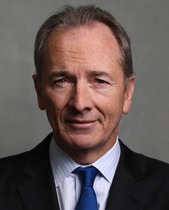
2008 Financial Crisis
The 2008 Financial Crisis, also known as the Global Financial Crisis, was the worst economic disaster that led to the Great Recession, where housing prices dropped more than the price plunge during the Great Depression of 1929. Considered as the greatest jolt to the global financial system in almost a century, the crisis started in August 2007 with a series of significant financial landslides, pushing the world’s banking system towards the edge of collapse. The immediate trigger was a combination of financial speculations in the financial market, caused by deregulation in the financial industry that permitted banks to engage in hedge fund trading with derivatives. Within a few weeks in September 2008, Lehman Brothers, one of the world’s biggest financial institutions, went bankrupt. As a response to the financial crisis, to prevent further collapse, lending has been encouraged, restoring faith in the integral commercial paper markets, providing banks with enough funds to allow customers to make withdrawals. Two years after the recession ended, unemployment was still above 9%.
Experts
Adam Posen
Alan Greenspan
Alan Gula
Andrew Ross Sorkin
Ben Bernanke
Charles Gasparino
Charles Mizrahi
Damian Paletta
Dan Ferris
Danny Moses
David Einhorn
Eric Rosengren
Harry Dent
Hugh Hendry
Jake Bernstein
James Gorman
John Hempton
Keith Fitz-Gerald
Kevin Warsh
Larry McDonald
Mark Galasiewski
Michael Burry
Michael Lewitt
Mike Markowski
Mohnish Pabrai
Nouriel Roubini
Paul Hodges
Peter Schiff
Robert Wiedemer
Satyajit Das
Simon Mikhailovich
Simon Ogus
Steve Eisman
Steve Sjuggerud
Tom Hoenig
Warren Buffett
- The price of many commodities (especially industrial metals) dropped significantly
- A collapse in US real estate construction was a big factor
- Was accelerated by a slowdown in Chinese Construction Projects
- The Federal reserve and FDIC extended FDIC insurance to 100% of bank deposits (previously was limited to a maxim of 250,000 per account)
- Bought long-term assets to push long-term interest rates lower during and after (Quantitiate Easing)
- Set its overnight lending rate to 0%.
- After the 2008 Meltdown, the balance sheet grew by 1.4 Trillion in just 94 days (under Ben Bernanke)
- Cause a reflation and recovery of financial markets
- Reshaped how the US financial system looks since
Key Sub Events
- 9/29/2008 : US House of Representatives rejected a bank bailout (Monday)
- 10/3/2008 : US House passes $700 billion bailout bill (Friday)
- Some representatives say they were told that the stock market would crater without this bailout
Also Commonly Referred to As:








































